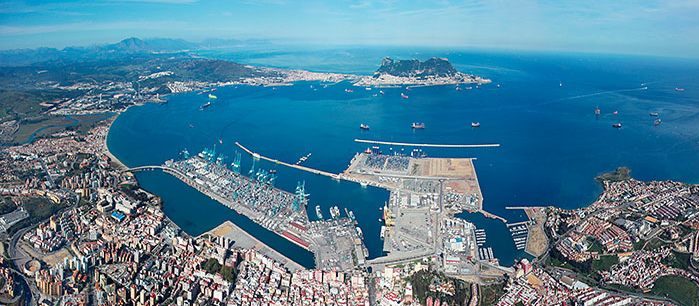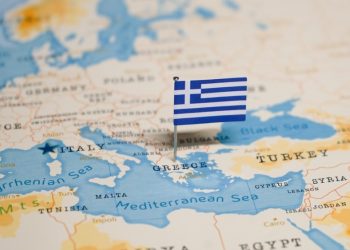More than 600 migrants entered the North African Spanish enclave Ceuta earlier this week, with the port city of Algeciras warning that help is needed to cope with the increasing numbers of migrants crossing in southern Spain.
Namely, Algeciras’s mayor José Ignacio Landaluce called for assistance as illegal migration to Spain has been increasing for more than a year and arrivals by sea have risen dramatically in recent weeks.
[smlsubform prepend=”GET THE SAFETY4SEA IN YOUR INBOX!” showname=false emailtxt=”” emailholder=”Enter your email address” showsubmit=true submittxt=”Submit” jsthanks=false thankyou=”Thank you for subscribing to our mailing list”]
This increase in migrant arrivals is making it difficult to accommodate the incomers, Reuters reported, and the Spanish coast guard called the government to allocate more resources to help with the influx.
Algeciras is experiencing this problem, as it is very near to the Strait of Gibraltar which separates Africa from Europe and has thus become a key route for migrants wanting to enter Europe. In fact, this week approximately 800 migrants tried to force their way through fences separating Ceuta with Morocco.
In the meantime, migrants’ arrivals by sea have more than doubled from last year, causing big problems to Spain, who has become the new centre for migrants. This comes after Italy’s new government has closed its ports to humanitarian ships that rescue migrants off Libya, and is not accepting migrants sent back from the German border. Namely, charity rescue vessels with foreign flags will not be allowed in Italian ports.
In the beginning of July, the humanitarian boat ‘Open Arms’, which was carrying 60 migrants, docked in Barcelona on Wednesday July 4, as it was scheduled. The ship ended up in Spain after Malta and Italy had rejected it, indicating the differences in the immigration policies of European countries.
In addition, the Dutch-flagged ship ‘Lifeline’ with about 230 rescued migrants on board for almost a week, finally docked in Malta on June 27. This development ended the dispute between Malt and Italy which refused to let the ship into one of its ports.
Finally, Malta detained another humanitarian ship on Monday July 2. The ship normally rescues boat migrants off the coast of Libya, where two shipwrecks have cost the lives of 200 people recently.
The Sea Watch 3 vessel requested to leave the port after maintenance was performed to it, but the port authority refused, Reuters reported. The port authorities mentioned that the ship’s status is currently under review
In order to give a solution to this issue, European Commission is expanding on the concept of controlled centres and short-term measures to improve the processing of migrants being disembarked in the EU, and gives a first outline of the possible way forward for the establishment of regional disembarkation arrangements with third countries.
To improve the effective processing of those disembarked in the European Union, EU leaders have called for the establishment of ‘controlled centres’ in the EU. The main features of such centres are:
- full operational support with disembarkation teams of European border guards, asylum experts, security screeners and return officers, and all costs covered by the EU budget;
- rapid, secure and effective processing that reduces the risk of secondary movements and accelerates the process to determine the status of the person concerned;
- full financial support to volunteering Member States to cover infrastructure and operational costs; as well as financial support to Member States accepting transfers of those disembarked (€6,000 per person).
To test the concept, a pilot phase applying a flexible approach could be launched as soon as possible.































































